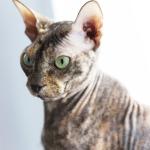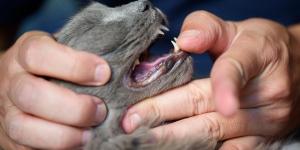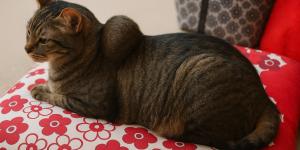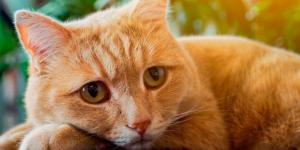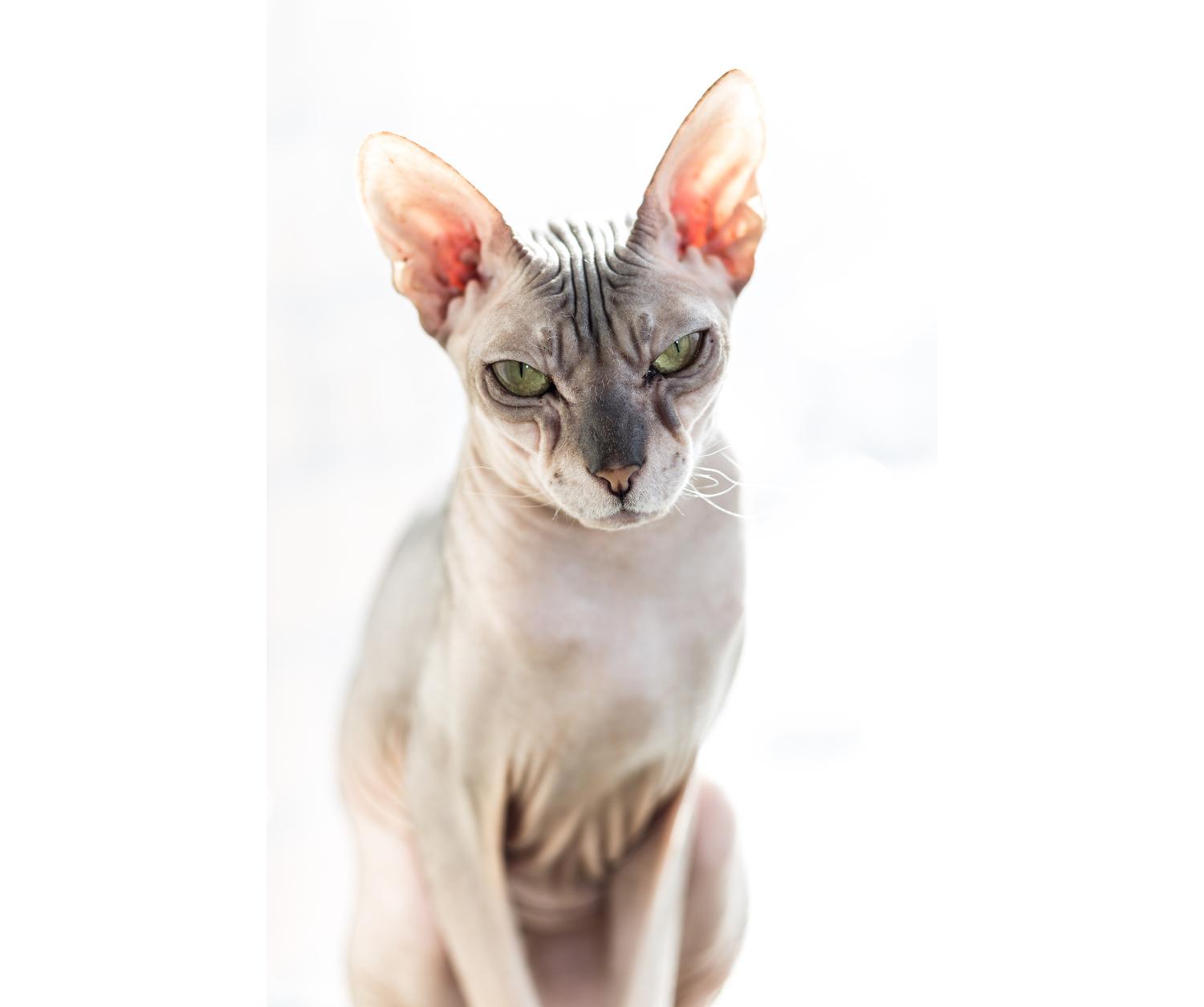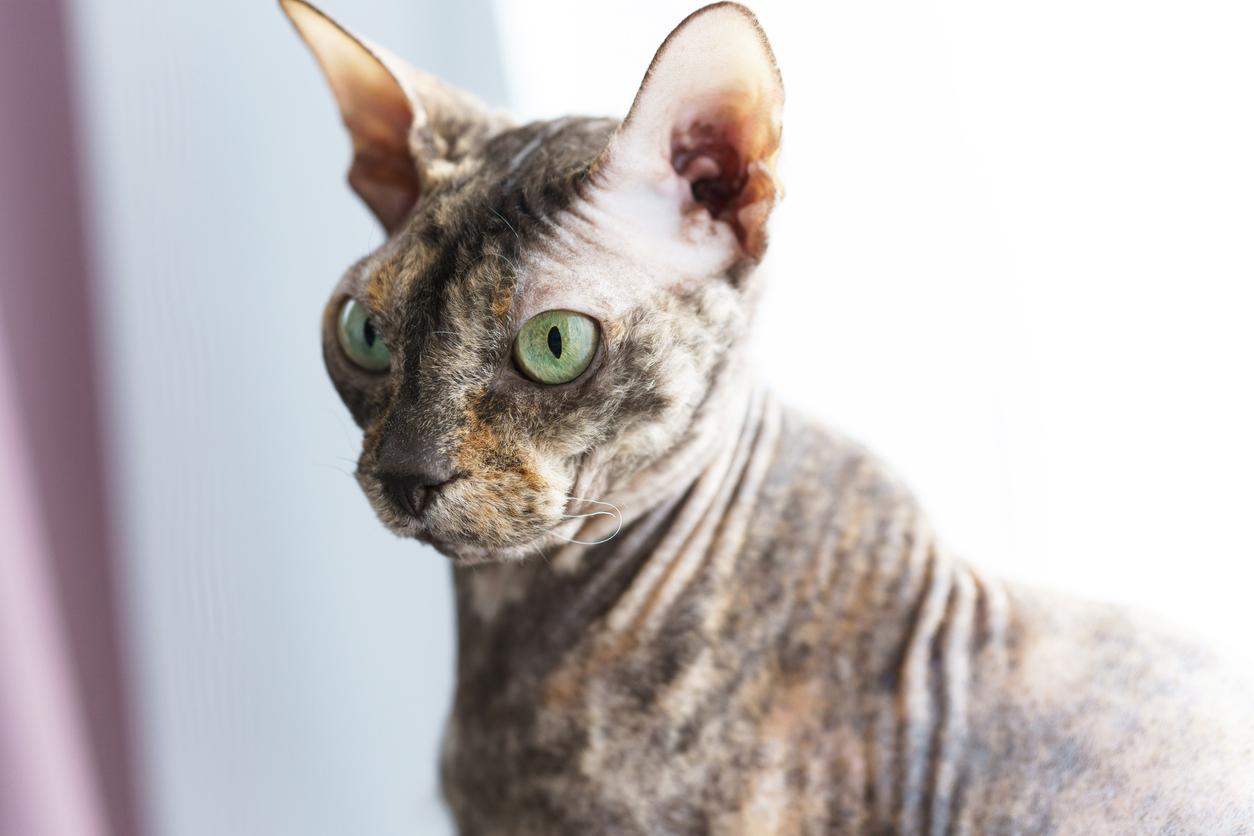Donskoy Cat or Don Sphynx

The Don Sphynx cat is also known as the Donskoy cat. Its origins are found in Russia in the 1980s when a kitten was found which gradually lost her hair as she aged. The same thing happened to her ktitens. These cats were healthy, the only thing that had occurred was a dominant character mutation which is easily passed on to offspring. This is what clearly differentiates them from the Sphynx cat breed whose lack of hair is due to a recessive mutation. It is a medium-sized, fine, affectionate, friendly and intelligent cat. Due to the absence of hair, a series of special care needs must be taken into account with these felines.
Continue reading to learn more about the Donskoy cat or Don Sphynx cat breed. We look at their origins, physical characteristics, care, health and more. We also provide photos so you can see what they look like.
- Europe
- Russia
- Category IV
- 7-11
- 11-13
- 13-17
- 17-22
- 22-30
- 8-10
- 10-15
- 15-18
- 18-20
Origin of the Don Ssphynx or Donskoy cat
The Don Sphynx cat is a breed of Russian origin, specifically from Rostov-on-Don, hence the name. The cat appeared in 1987 as a result of the discovery by Elena Kovaleva of a kitten from a litter that she had collected days before and that was losing her hair. This news reached a cat breeder and she began to study the cat. She came to the conclusion that the young cat did not have any endocrine or dermatological disease, but that she was a completely healthy cat who was losing her hair due to a genetic mutation. When this kitten had her first litter, several of her kittens also lacked hair and those that did have lost it as the weeks went by. It was deduced that it was a dominant mutation and not a recessive one as it happens with Sphynx cats.
This feline breed was recognized in 1997 by the WCF, in 2005 by the TICA and in 2011 by the FIFE.
Physical characteristics of the Don Sphynx or Donskoy cat
The Donskoy cat is medium in size with a height of 25 to 35 cm. They have a weight of 4 to 5 kg in males and 2 to 3 kg in females. Their body is muscular, despite appearing fine and delicate due to the absence of hair. Due to this lack of hair, the skin folds are well marked and the fingers are long and well differentiated. The legs are long and strong and the tail is thin and long.
The head of the Don Sphynx is wedge-shaped, the cheekbones are well developed and they have a strong chin. Their heavily wrinkled forehead is quite flat. The ears of these cats are large, wide and set high, with a somewhat forward direction. The eyes of this cat breed are almond shaped and have a serious, yet calm expression. As for color, their eyes can be of any shade, but always bright and clear and corresponding to the color of their skin or what little hair they have.
Don Sphynx cat colors
The Don Sphynx is a cat of the group of hairless cat breeds, although the skin can be of various colors and patterns. Depending on the amount of hair and how long it lasts until it falls out, we can differentiate 4 types of Donskoy cat:
- Don sphynx brush: they have the most hair, since they are born with it, but lose it incrementally on the head, neck and upper back.
- Don sphynx velour: they are born with woolly hair that ends up disappearing during their first year of life, leaving some short hairs on the tail, legs and face.
- Don sphynx flock: they are born without hair, but with a type of hair that gives them a velvety touch that can disappear over time, leaving them completely without hair or hair.
- Don sphynx rubber bald: these cats are born hairless and their coat will never grow.
Don Sphynx or Donskoy cat character
The Don Sphynx has an affectionate, friendly and loyal temperament. They are very sociable cats, so they tend to get along with other animals, strangers and people of all ages. This is especially if they are willing to play with them, as they are very playful felines. They are also very active, so they need to be in constant movement, climbing, jumping and running around the house.
Something to note about this breed is that they do not like to be left home alone. They are dependent and faithful to their caregivers, so they tend to suffer in their absence, especially if they lack environmental enrichment.
Don Sphynx or Donskoy cat care
With regard to Donskoy hygiene, due to the amount of sebaceous secretion they produce daily on their skin which is not distributed through hair, it will be necessary to clean it with wet cloths or cat wipes designed especially for it. Bathing can also be done with a mild cat shampoo if they tolerate it well. The hygiene for the eyes, ears and teeth is key to the prevention of diseases and infections that can affect these structures.
Related to the absence of hair, they are cats whose skin is very exposed to damage from UV rays from the sun. For this reason, they must use sunscreen. This will help to avoid problems such as skin cancer and solar dermatitis in cats. They are also sensitive to low temperatures as their lack of fur makes heat escape, so the house must always be heated. Likewise, in very cold climates, it is worth using coats or blankets for cats to help them thermoregulate.
The diet of the Don Sphynx must be complete, balanced and intended for the feline species. Donskoys have a fast metabolism, so they need to eat more every day than other calmer cat breeds with slower metabolisms. However, the amount should always be adjusted to each Don Sphynx in particular according to their individual characteristics. Water should always be available and food should be given in several small daily meals.
They should have interactive toys and other environmental enrichment measures for cats, especially for when they are home alone. In addition to scratching posts, it is best to have a good litter box with a litter of their liking, which is not irritating to the skin and preferably not perfumed.
Don Sphynx or Donskoy cat health
The life expectancy of the Don Sphynx cat is between 10 and 15 years. They are strong and healthy cats that are not predisposed to any particular disease. However, due to the absence of hair, they can suffer sunburn in summer, be more prone to skin infections from scratches or trauma, and allergies and other dermatological problems. Learn about the most common skin diseases in cats in this other article.
What will help the cat to have a good life expectancy and be happy and healthy will be the correct care and good preventive medicine. To prevent infectious and parasitic diseases, it is advisable to go to the veterinary clinic to establish a vaccination and deworming schedule, respectively, as well as routine check-ups. It is also important that they are sterilized to prevent diseases and tumors of the reproductive system of males and females Don Sphynx.
Where to adopt a Don Sphynx or Donskoy cat?
The adoption of a Don Sphynx specimen can be difficult, since they are usually very popular cats with breeders, but don't have a very large population. However, it may be possible to find a Donskoy cat in a shelter. If this is not the case, you can also search for Don Sphynx cat rescue associations.
Donskoy Cat or Don Sphynx photos


